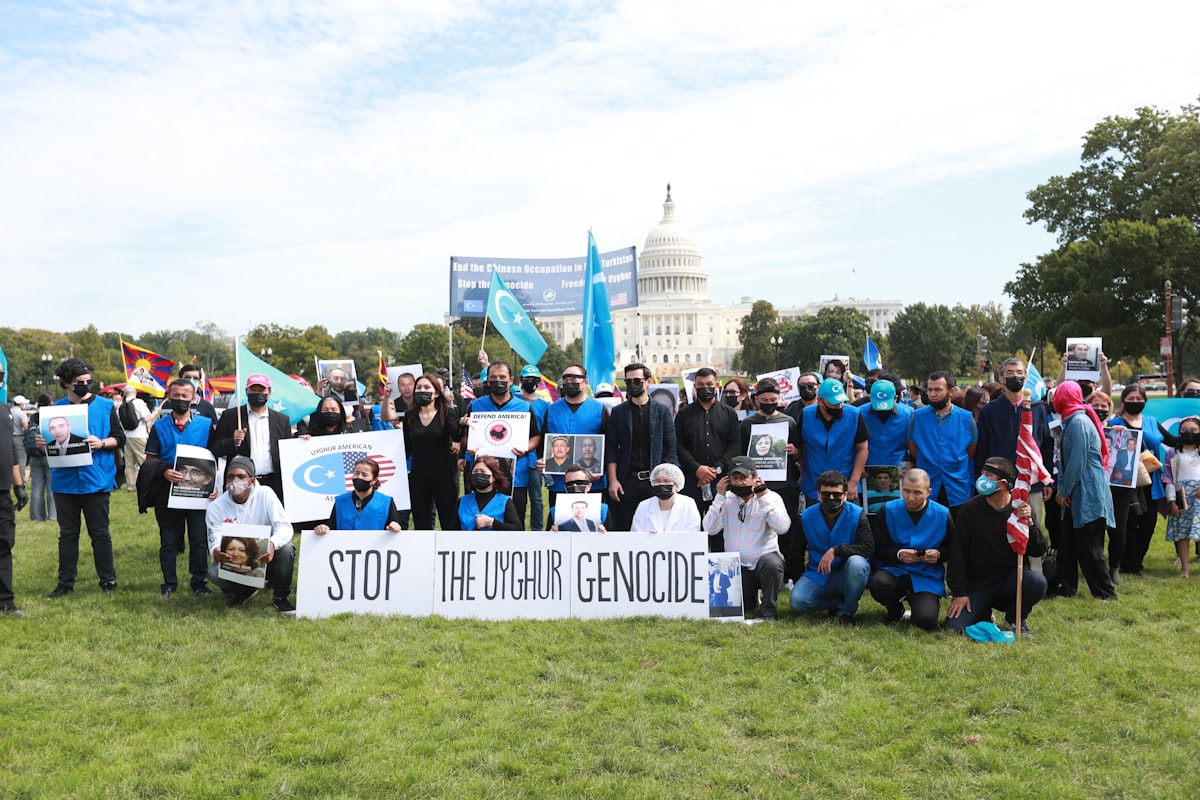What is the Purpose of the U.N.?: U.N. Commissioner Asks China to Stop Genocide

The top official regarding human rights in the United Nations visited Xinjiang in what appeared to be nothing more than an opportunity for her to pretend she actually does her job. The Xinjiang region in the far northwest of China has been a hotbed of human rights abuses in the last years as freedom movements have grown to large scale fighting. The Chinese government has tried to stop this by using internment camps and political imprisonment to maintain control. These actions have come into the international spotlight as accusations of genocide and violation of U.N. code have been placed at the feet of the government. While as usual the U.N. government had done nothing in any serious matter to prevent or thoroughly investigate these accusations, the human rights groups were shocked by the lack of caring during this visit to make any meaningful attempt at helping the oppressed.
Xinjiang and the Uyghur People
China has always had long standing issues with religious minorities within their country, from oppressing the Christians, to the attack on Tibet, and the Islamic Uyghurs. Much of these issues originate in the atheist styled communist government of Beijing with large amounts of religious minorities living in the fringe areas of the nation. In Xinjiang the Uyghur people have been demanding more authority since the standing government pushed the Kuomintang out of the region. Since then, it has been a hotbed of independent aimed organizations centered around Islamism, reform, or independence. This has always been unacceptable to the Chinese government as organized anti-government groups have always been handled harshly by Beijing and the military. This direct action against entire communities is the way the Chinese government handles dissent, and the Uyghur people have been treated no differently.
The Uyghur people are Turkic and Islamic compared to the predominantly Han Chinese. Xinjiang itself has always had a certain level of autonomy to more or less rule itself as part of China, both during and before the Communist rule. This has changed in the last three decades as China has deepened attempts to centralize the rule of the government in Beijing and deter the local provinces from having any type of autonomous power. One of these policies is mass migration of Han Chinese to the region to slowly integrate all of the local people into the majority government sponsored ethnic group. Since the beginning of this policy, it has never gone over smoothly with the local population who see the government as trying to eradicate their history and their culture.
This policy of crackdown was intensified in the last 30 years as the backlash has grown from riots and protests to skirmishes and terrorist attacks. Instead of negotiating the Chinese government has instead cracked down even harder with rigorous surveillance measures as well as more aggressive policing. This included the banning of cultural clothing, Islamic beards, and controlling the languages that the locals spoke. When the situation continued to spiral out of control the government ordered mass arrests of the local population to further “re-educate” them and in essence forced them into concentration camps. For years the government has denied that any of these camps even existed and furthermore have claimed that these camps are to train people in vocational studies to better assist the economy. A full detailed account of the Xinjiang conflict can be read here in The New Yorker as well here in a Human Rights Watch report.
The United Nations Delegation and the Inaction of the Human Rights Council
Michelle Bachelet has been the high commissioner of the U.N. Human Rights since 2018 after serving as president of Chile for two terms. Her leadership has always been weak and indecisive in the U.N. and under her watch the expansion of concentration camps and ethnic cleansing in China has increased unimpeded. When she first took office, she criticized and condemned the actions of the Chinese government but hoped that communication with the Chinese government would assist in solving these issues. Her office has often criticized conflicts throughout the world and human rights violations but without any real plan to prevent or stop them from happening. For the last two years this is mostly where the problem solving stopped but in a planned trip from May 22-28th was supposed to cover these issues.
.@mbachelet: Meetings with President Xi & senior officials have been valuable to discuss directly human rights issues & concerns in China & global. For development, peace & security to be sustainable: human rights, justice, inclusion of all, without exception, must be at the core
— UN Human Rights (@UNHumanRights) May 25, 2022
The trip itself was to meet with leading Chinese officials to come to an understanding on Uyghur abuses and a visit to Xinjiang to open the eyes of the U.N. and the world to what is actually happening in the camps. Unfortunately for justice and the code of the U.N. regarding human rights the commissioner bypassed the camps and only visited the state sponsored areas where there are no reports of abuses. In essence the visit became a vacation to meet with and talk about human rights issues with human rights abusers. The official Twitter account of the U.N. Human Rights Council states that she had met with President Xi Jinping to discuss human rights issues without really going into detail on the matter. The Chinese government’s policy on this has always been an issue of public safety and that whatever they do they do it for stability and counterterrorism. This means that talking about these issues is unlikely to move them from their position and without U.N. intervention the situation for the Uyghur people is grim.


